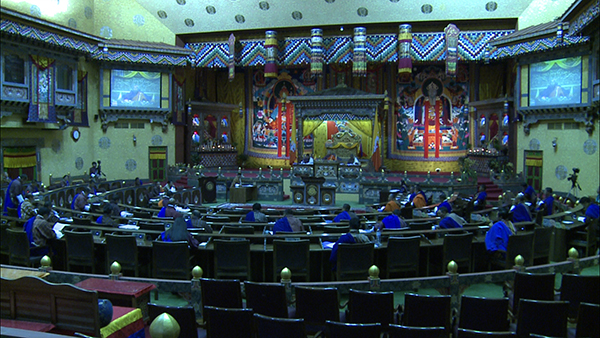 Bhutan’s state of the current education system was at the heart of the discussion today at the National Assembly. Although, most members agreed on all the recommendations submitted by the Social and Cultural Committee, the discussion lasted around four hours.
Bhutan’s state of the current education system was at the heart of the discussion today at the National Assembly. Although, most members agreed on all the recommendations submitted by the Social and Cultural Committee, the discussion lasted around four hours.
Most members stressed on the importance of the national language, Dzongkha. While some expressed, Dzongkha was losing its value and importance, others believe it has improved compared to past years.
Some of the MPs said Dzongkha was still popular among students and many scored higher marks in Dzongkha than other subject. Sharing a record from the education ministry, economic affairs minister, who was representing the education minister said, students of classes three, six and ten scored higher marks in Dzongkha.
However, some of the MPs said, there were fewer areas requiring the knowledge of Dzongkha once students complete studies. Lyonpo Norbu Wangchuk said this was leading to ‘professional isolation’.
Opposition Leader, Dr. Pema Gyamtsho said in an effort to improve Dzongkha, it was also difficult to find Dzongkha equivalent of words and terms related to technology.
In the past, to improve the national language, measures such as teaching history in Dzongkha was adopted, later however, it was stopped, as it proved unsuccessful. Reasons such as poor textbooks, and teachers lacking proper pedagogy were cited.
At the beginning, children are also taught by class teachers who teach most of the subjects.
Prime Minister Tshering Tobgay said the move to restructure the education system would require serious forethought. He said changing curriculum for students accompanied lot of risks.
He said English was used in most official correspondences. Pointing at the report in his hand, he said, the report like all other reports appeared to have first written and composed in English and then later translated to Dzongkha.
Because of this, many forget Dzongkha.
Other MPs said Dzongkha should receive more importance, as is the practice in many countries including Japan, France, Denmark, and Switzerland etc.
One major issue facing Bhutan’s education system has been the increasing number of students against limited teachers. In Bhutan there is only one teacher for every 32 students.
The international optimum teacher student ratio was at 1:20.
A member of the social and cultural committee of the parliament said with lesser areas of opportunities to use Dzongkha, students forget in the long run with some even unable to write their names in Dzongkha.
Speaker Jigme Zangpo said, everyone including the government, the media, film industry, private sector was responsible in improving the national language including all Bhutanese.






